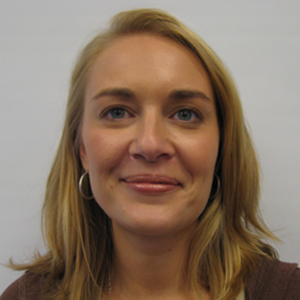Intro to grant-writing resources and careers
One of the most critical skills needed for a successful career in science is grant writing. For academics, being a proficient grant writer is necessary for survival. Additionally, if you do any type of nonprofit or outreach work, you'll likely be involved with grants because many nonprofits live or die based on grant funding. It's also a legitimate career track, plus grant consulting also makes a good side gig (because, hey, everybody needs money but may not have the time or like to write).
Unfortunately, this skill may not be taught in school, and, even then, experience is the best way to master. If you want to do something beneficial for your future career, seriously take the time to do some grant-writing training. This story suggests some ways to get experience and training, along with an introduction to career paths in this area.
How to get experience
- Talk to your PI and see if you can help with preparing or editing a grant. It also may be possible to be listed as a co-PI depending on your professional level, institutional policies and funding agency guidelines. At the very least, ask to see the grant that you are funded on and review how it's written and structured (which happens to be a good idea anyway to know what your lab has been funded to do).
- Whenever possible, apply for any grants and fellowships that you are eligible for (e.g., summer research grants, postdoctoral fellowships). This is great experience and shows your ability to secure funding. For example, the ASBMB offers a number of scholarships and awards, plus a list of other potential programs on its website. I'll follow up with more resources on where to find related funding opportunities in a future post.
- Reach out to local nonprofits, school districts, etc. to offer assistance with funding research and grant applications (believe me, they always need help). Or maybe better yet, if you are involved in science outreach or other volunteer work, look for grants that will support your current projects and apply.
- Another very useful activity is reviewing grants to understand the mindset of a reviewer and see examples of well-structured proposals. Most federal agency websites include reviewer information that outlines qualifications required and how to submit your name to the peer-reviewer database. Based on my experience in securing grant reviewers, I also suggest keeping an updated LinkedIn profile and professional website so that people easily can find you. If you're not quite eligible to review for these types of grants yet based on education level or experience, see if you can join a committee through a professional society to review scholarship and award applications. Also a number of nonprofits need help reviewing grants for outreach projects. I have found such opportunities by following nonprofits on Twitter and responding to requests for reviewers.
Where to find training and resources
- Check on grant-writing workshops available through your university. One tip I've learned is that the offices of sponsored programs and research often put on workshops that anyone can attend. These workshops include information on funding trends, federal-agency granting mechanisms and opportunities to meet with these agencies' program managers. And if your school has more than one campus, be sure to see what is offered throughout the university system. Many research offices also post great resources on their websites. For example, one online resource that's been helpful for me is the University of Tennessee–Knoxville Grantseeker's Toolkit.
- Professional-science societies often offer online courses and in-person grant-writing workshops to their members. Check out the websites of the organizations you belong to for opportunities. For example, the ASBMB hosts the Interactive Mentoring Activities for Grantsmanship Enhancement workshop, which will be held this June in Washington, D.C. It is open to assistant professors and postdoctoral scientists who are preparing to transition into independent faculty positions. Applications are due by April 13.
- Most federal agencies that administer grants provide valuable online training resources and tutorials. Another useful resource provided by Grants.gov, the clearinghouse for federal grants, is the Grant Learning Center, which provides information on the granting process, key terminology and more.
Don't limit yourself to thinking only about federal grants. There are lots of nonprofits and foundations highly engaged in the research space that offer grants, fellowships, etc. Find resources to stay updated on funding news in the foundation world. For example, the Foundation Center is a good source of information on funding news and training resources via the Philanthropy News Digest and Grantspace.org.
Enjoy reading ASBMB Today?
Become a member to receive the print edition four times a year and the digital edition monthly.
Learn moreFeatured jobs
from the ASBMB career center
Get the latest from ASBMB Today
Enter your email address, and we’ll send you a weekly email with recent articles, interviews and more.
Latest in Careers
Careers highlights or most popular articles

Defining JNKs: Targets for drug discovery
Roger Davis will receive the Bert and Natalie Vallee Award in Biomedical Science at the ASBMB Annual Meeting, March 7–10, just outside of Washington, D.C.

Upcoming opportunities
No matter where you are in your career and what future path you aspire to, everyone needs leadership skills. Join ASBMB for practical strategies for building and practicing leadership skills.

Close out ASBMB 2026 with a bang
The closing reception of the 2026 ASBMB Annual Meeting will be held at the Torpedo Factory Art Center in Alexandra, Virginia.

Redefining lipid biology from droplets to ferroptosis
James Olzmann will receive the ASBMB Avanti Award in Lipids at the ASBMB Annual Meeting, March 7–10, just outside of Washington, D.C.

Creating change in biochemistry education
Pamela Mertz will receive the ASBMB William C. Rose Award for Exemplary Contributions to Education at the ASBMB Annual Meeting, March 7-10 in Washington, D.C.

Trainee mentorship as immortality
Suzanne Barbour will receive the ASBMB Sustained Leadership Award at the ASBMB Annual Meeting, March 7-10 in Washington, D.C.

